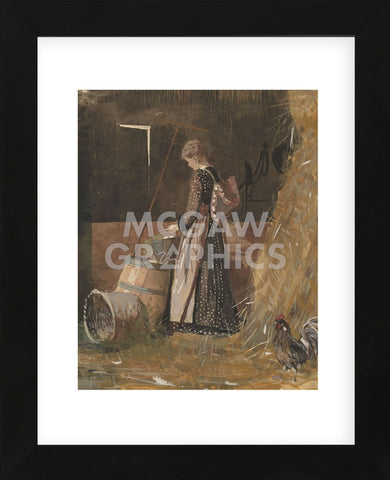Product Detail
- Overall: 16" H x 13" W x 0.75" D
- Overall Product Weight: 2.5lb.
- Material: Glass
- High-quality print on heavy paper
- Printed with vibrant, color-fast inks
- Framed in a contemporary style molding; available in black, gold, and white
- Sawtooth hanger
- Unmatted
Image is Copyrighted and Property of its respective owner
Product Detail
- Overall: 16" H x 13" W x 0.75" D
- Overall Product Weight: 2.5lb.
- Material: Glass
- High quality print on heavy paper
- Printed with vibrant, color-fast inks
- Framed in a contemporary style molding; available in black, white, and gold
- Sawtooth hanger
- Unmatted
About the Artist
Winslow Homer (born Feb. 24, 1836, Boston, Mass., U.S. — died Sept. 29, 1910, Prouts Neck, Maine) was an American painter. He served an apprenticeship with a Boston lithographer, then became a freelance illustrator in New York City. He exhibited at the National Academy of Design in 1860 and was elected a member in 1865. During a stay in France in 1866, he was attracted to French naturalism and Japanese prints, but they had little effect on his generally bright and happy work. He became a master of watercolour and his ability as an oil painter matured; he focused increasingly on solitary, withdrawn figures. He spent 1881 – 82 in the English village of Tynemouth, on the North Sea, where the coastal atmosphere, the sea, and the stoic people are the subjects of some of his most powerful images. In 1883 he moved permanently to Prouts Neck, and his dominant theme became the sea and the endless struggle against an uncaring nature. In his later years he continued to paint vigorously and in near-total isolation. Though he was recognized in his lifetime as a leading U.S. painter, appreciation of his enormous achievement came only after his death.





